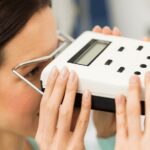Should You Get Tested for SIBO?
When you have chronic intestinal symptoms, it can be a sign for your doctor to consider the diagnosis of small intestinal bacterial overgrowth. If you feel bloated or have diarrhea and stomach pain, you should consider testing yourself to be sure that SIBO is the problem because there are ways to treat it. They are usually the same for every person so it is quite easy to diagnose.
Visiting your doctor is the first step you should make so they can figure out if the breath test is the next step. That is Sibo Testing which measures the concentration of methane and hydrogen in your breath. They will later see which antibiotic and what type of diet you should have when they see the results. They may vary depending on how high the levels are of hydrogen and methane. Another important thing to mention is that you will need to fast for 24 hours before doing it.
Breath Testing
This is the most common thing to do when the doctor suspects you have SIBO. After drinking some liquid, they will look for the presence of hydrogen after an hour which indicates that certain bacteria is present in the small intestine. It is usually more than an hour because it takes a bit more for sugar to reach the gut bacteria that will react in such a way that is noticeable through this test.
Some doctors have concerns about the efficiency of it but you can do it multiple times to be sure. There can be false-positive results so you can initiate another one after you get the results. This happens when they have other conditions as well which affects the outcome.
There isn’t any other better way to figure out if you are positive or not. There also isn’t a limit that is set for having a positive result but safety and simplicity is one of the biggest reasons why professionals do it and why it is the most popular way to do it. The results can also differ depending on the age considering that older people have a worse immune system and other issues.
Who Is Getting Tested?
A similar disease called irritable bowel syndrome or IBS is misdiagnosed often which makes researchers considering getting patients tested for SIBO once they find out they are experiencing symptoms like diarrhea, abdominal pain and bloating. Another sign is when a person shows nutritional deficiencies. It’s also recommended for those patients that are not getting better when treated for scleroderma and chronic pancreatitis. Celiac disease can be another one connected to it when the individual isn’t getting better despite a strict gluten-free diet.Click here to read more.
How to Prepare?
The first thing you need to know is the center where they will do the testing and then your doctor will provide further instructions on how you should prepare. Always follow the directions given to you but if you want to do it in advance, there are a few things you need to do. For example, colon cleansing products are used prior to a colonoscopy and you shouldn’t use these products a month before going to the clinic.
The second thing to mention is that you shouldn’t use any probiotics or antibiotics for at least three weeks. Don’t use any stool softeners, fiber supplements or laxatives a week before. It’s recommended to eat chicken or broiled fish, potatoes, white bread or rice for a couple of days before visiting the doctor. In the last 12 hours, you shouldn’t drink or eat anything which includes candy and gums and don’t smoke or exercise.
During the Test
Because your month is filled with good and bad bacteria, they might ask you, in the beginning, to rinse your mouth before they start. Then, they will ask you to provide a baseline breath sample which means that you need to low up a balloon. The next step is to drink a small portion of liquid that contains either lactulose or glucose. For the next two hours, you will have to blow up the balloon every 15 minutes. It can take up to 3 hours if the liquid is lactulose.
Medication They Can Prescribe
Probably the best way to solve the problem is with proper medication and diet but after taking antibiotics you should feel instant relief. One of the best and most commonly prescribed medications is Xifaxan which works as an antibiotic and is much different from most of them because it’s not absorbed through your stomach. Rather, it works “locally” on the issue which is bacteria in your small intestine.
They will most likely follow the FDA guidelines when it comes to dosing because there aren’t any standards and duration for the use of this medicament. It is usually taken for two weeks and if it doesn’t help, you can do it for another week or two. This will depend on the person so it’s better to start small and increase the dosage if it starts working well for you. The doctor should have this in mind once providing the treatment. Read more about it here: https://www.verywellhealth.com/treatment-of-small-intestinal-bacterial-overgrowth-4128710
Jejunal Aspiration
There is another method that isn’t that common when it comes to diagnosing SIBO but professionals consider it more accurate and that is the jejunal aspiration test. It is done during the upper endoscopy procedure where they will take a sample of fluid from your small intestine which they will check for bacteria. It isn’t 100% accurate like most of them and false negatives can happen but it’s more reliable than others.
It can be difficult to get a large enough sample which is the reason why they end up with a negative result. More importantly, it’s more accurate when it provides positive results except when the sample is poorly handled. There is a big difference between this and breath testing and you might have to follow a liquid diet for three days. It’s most likely that you won’t do this method because it’s more complex but either way, you should focus on improving your diet and lifestyle to prevent the problem from occurring in the first place.






